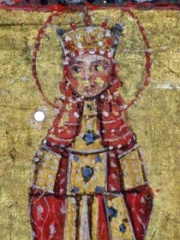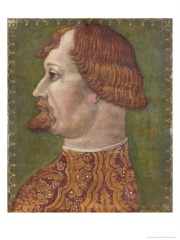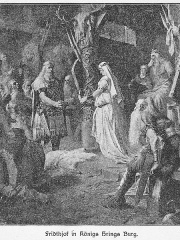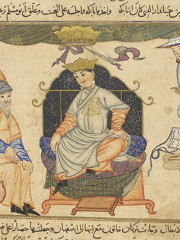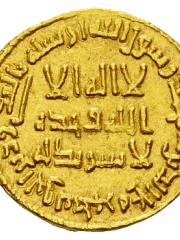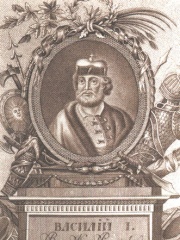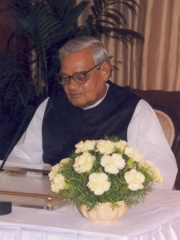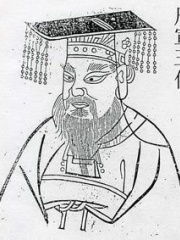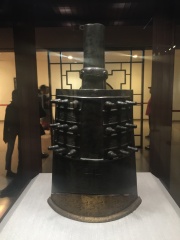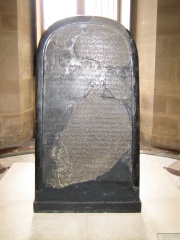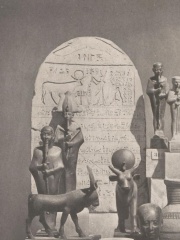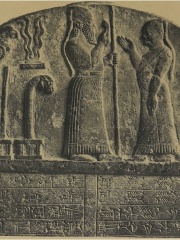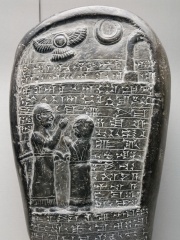Politician
Jeroboam II
850 BC - 742 BC
EN.WIKIPEDIA PAGE VIEWS (PV)

 Jeroboam II
Jeroboam II
His biography is available in 34 different languages on Wikipedia (up from 33 in 2024). Jeroboam II is the 2,611th most popular politician (down from 1,855th in 2024).
Jeroboam II is most famous for his religious reforms, which caused the northern kingdom of Israel to separate from the southern kingdom of Judah.
Memorability Metrics
Page views of Jeroboam II by language
Among Politicians
Among politicians, Jeroboam II ranks 2,611 out of 19,576. Before him are Agnes of France, Byzantine Empress, Gian Galeazzo Visconti, Emperor Jing of Han, Mauno Koivisto, Sigurd Ring, and Barkiyaruq. After him are Louis, Prince of Condé, Phalaris, Yazid II, Maria Amalia of Naples and Sicily, Vasily I of Moscow, and Atal Bihari Vajpayee.
Most Popular Politicians in Wikipedia
Go to all RankingsAgnes of France, Byzantine Empress
1171 - 1220
HPI: 70.57
Rank: 2,606
Gian Galeazzo Visconti
1351 - 1402
HPI: 70.57
Rank: 2,607
Emperor Jing of Han
188 BC - 141 BC
HPI: 70.57
Rank: 2,608
Mauno Koivisto
1923 - 2017
HPI: 70.57
Rank: 2,609
Sigurd Ring
800 - Present
HPI: 70.56
Rank: 2,610
Barkiyaruq
1081 - 1104
HPI: 70.56
Rank: 2,611
Jeroboam II
850 BC - 742 BC
HPI: 70.56
Rank: 2,612
Louis, Prince of Condé
1530 - 1569
HPI: 70.56
Rank: 2,613
Phalaris
700 BC - 600 BC
HPI: 70.56
Rank: 2,614
Yazid II
687 - 724
HPI: 70.55
Rank: 2,615
Maria Amalia of Naples and Sicily
1782 - 1866
HPI: 70.55
Rank: 2,616
Vasily I of Moscow
1371 - 1425
HPI: 70.55
Rank: 2,617
Atal Bihari Vajpayee
1924 - 2018
HPI: 70.55
Rank: 2,618
Contemporaries
Among people born in 850 BC, Jeroboam II ranks 2. Before him is Jonah. After him are King Xuan of Zhou, King Li of Zhou, Mesha, King Yi of Zhou, Shoshenq V, Lutipri, Marduk-zakir-shumi I, and Marduk-balassu-iqbi. Among people deceased in 742 BC, Jeroboam II ranks 1.
Others Born in 850 BC
Go to all RankingsJonah
RELIGIOUS FIGURE
850 BC - 810 BC
HPI: 84.79
Rank: 1
Jeroboam II
POLITICIAN
850 BC - 742 BC
HPI: 70.56
Rank: 2
King Xuan of Zhou
POLITICIAN
850 BC - 782 BC
HPI: 63.83
Rank: 3
King Li of Zhou
POLITICIAN
850 BC - 828 BC
HPI: 63.73
Rank: 4
Mesha
POLITICIAN
850 BC - 850 BC
HPI: 63.27
Rank: 5
King Yi of Zhou
POLITICIAN
850 BC - 878 BC
HPI: 60.60
Rank: 6
Shoshenq V
POLITICIAN
850 BC - 730 BC
HPI: 60.23
Rank: 7
Lutipri
POLITICIAN
850 BC - Present
HPI: 58.85
Rank: 8
Marduk-zakir-shumi I
POLITICIAN
850 BC - 900 BC
HPI: 58.61
Rank: 9
Marduk-balassu-iqbi
POLITICIAN
850 BC - Present
HPI: 56.87
Rank: 10
